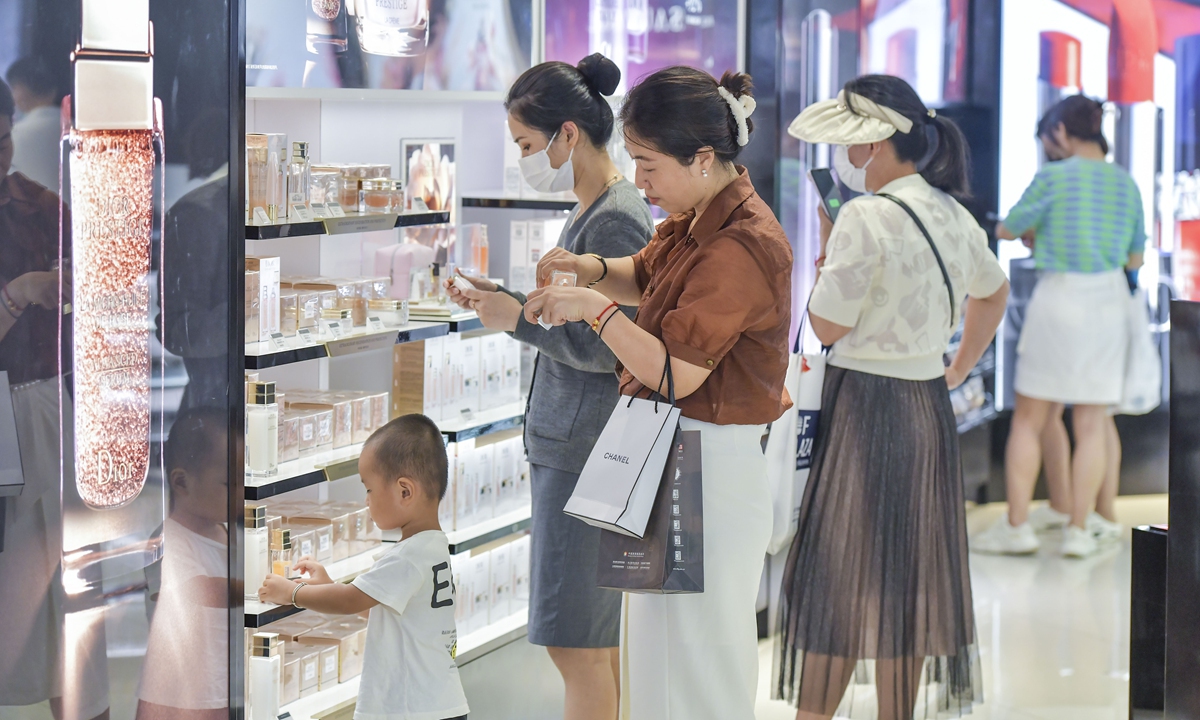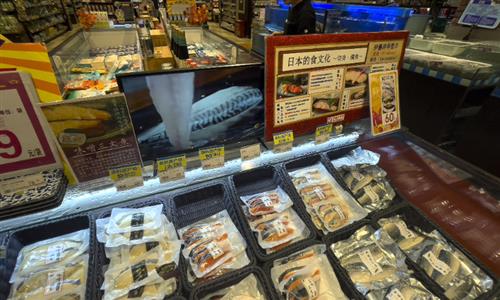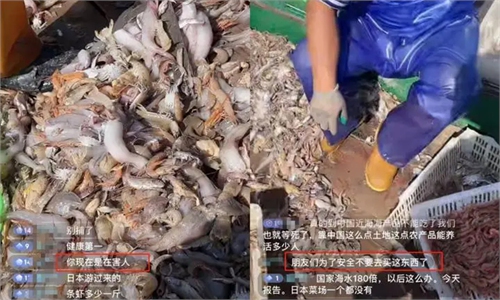Shoppers shun Japanese cosmetics brands amid nuclear-contaminated wastewater dumping fears

Photo: cnsphoto
Chinese consumers are growing more resistant to Japanese products, including cosmetics, due to Japan's selfish plan to dispose of nuclear-contaminated wastewater into the ocean.
Many consumers are drawing up "a blacklist" comprising more than 30 Japanese cosmetic products and opt for alternative brands.
The trend puts at risk one of Japan's main exports to China, which reached more than $4 billion from January to November 2022. Japan had the second-largest share in the Chinese cosmetic market last year, but sales have been plunging amid consumers' increasing resistance.
On Chinese social media platforms, many posted their blacklists of Japanese cosmetic brands and warned others to avoid buying them. One such blacklist on Weibo which was widely reposted contains 31 Japanese brands, including SK-II, Shiseido and Muji. Topics related to Japanese cosmetics have attracted hundreds of millions of views.
On Xiaohongshu, another social media platform, Chinese consumers compiled a list of Japanese cosmetics and another list of alternative brands, drawing widespread attention.
A 35-year-old Beijing resident surnamed Huang told the Global Times on Saturday that she was a loyal user of Japanese cosmetics, including SK-II, but she stopped purchasing them after seeing the news of Japan's plan to dump nuclear-contaminated wastewater into the sea.
"It definitely causes [safety] concerns for me," Huang said, adding that several of her friends who decided to travel to Japan decided to suspend their plans and others have now switched from Japanese cosmetics to European brands.
A number of consumers said on social media platforms that they had returned Japanese cosmetics they purchased.
The trend is accelerating, despite explanations from vendors of Japanese cosmetics.
An employee selling Japanese cosmetics at SKP, a luxurious shopping mall in Beijing, told the Global Times that some clients came into the store with product safety concerns. While all their cosmetics sold in China were made in Japan, they meet the corresponding safety standards of the Chinese government on imported goods, the employee said.
After reaching out to several Japanese cosmetic vendors, including Shiseido, Shu Uemura and SK-II, the Global Times noticed that they all provided similar responses in an attempt to assuage consumers' safety concerns.
In a statement sent to the Global Times, SK-II said its products meet Chinese import standards, and it provided a copy of an inspection report issued by Shanghai customs on July 26.
However, at Beijing's Huamao Shopping Mall, the stalls of Japanese cosmetic brands were noticeably reduced in size, as observed by Global Times on Sunday. Additionally, various daily products from Japanese brands, such as Kao's popular hair coloring items, have been relocated to the highest shelves.
Addressing the influence of public sentiment following Japan's release of nuclear-contaminated wastewater, a store employee told the Global Times on Sunday that "these days, many people are hesitant to purchase products made in Japan."
Some consumers have asked customs authorities whether more inspections will be carried out on Japanese cosmetics. In response, the Shanghai Customs District said in June that authorities will step up nuclear radiation detection on products from Japan and take measures to prevent the import of products with levels of nuclear radiation that fail to meet standards.
Between 2019 and 2022, Japan had the biggest market share in China for cosmetics. However, China's imports of Japanese cosmetics have been declining since May.


